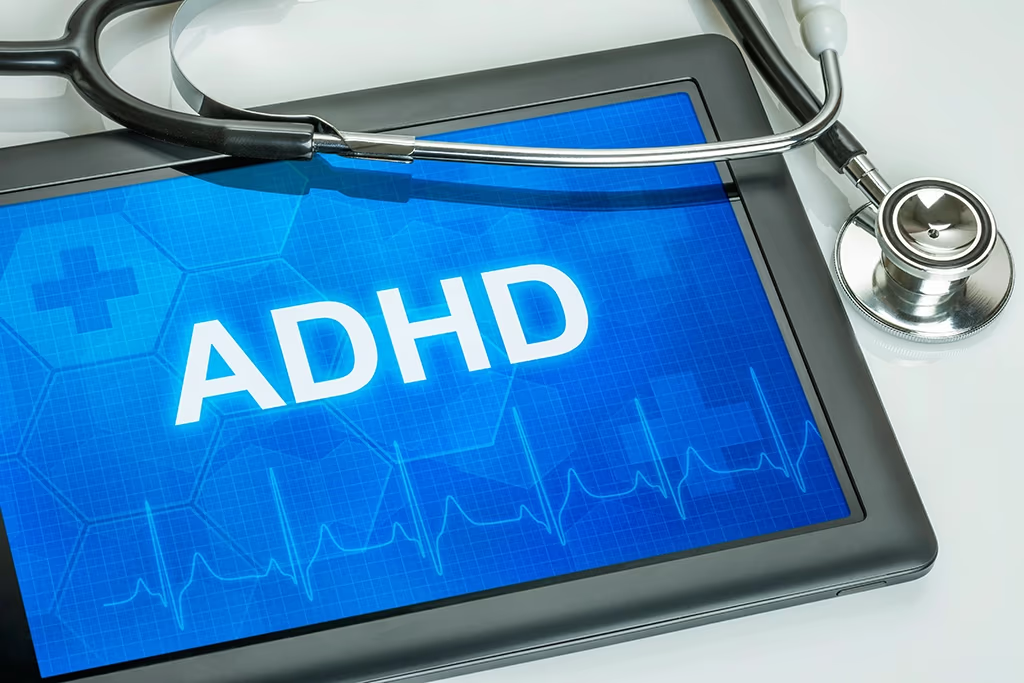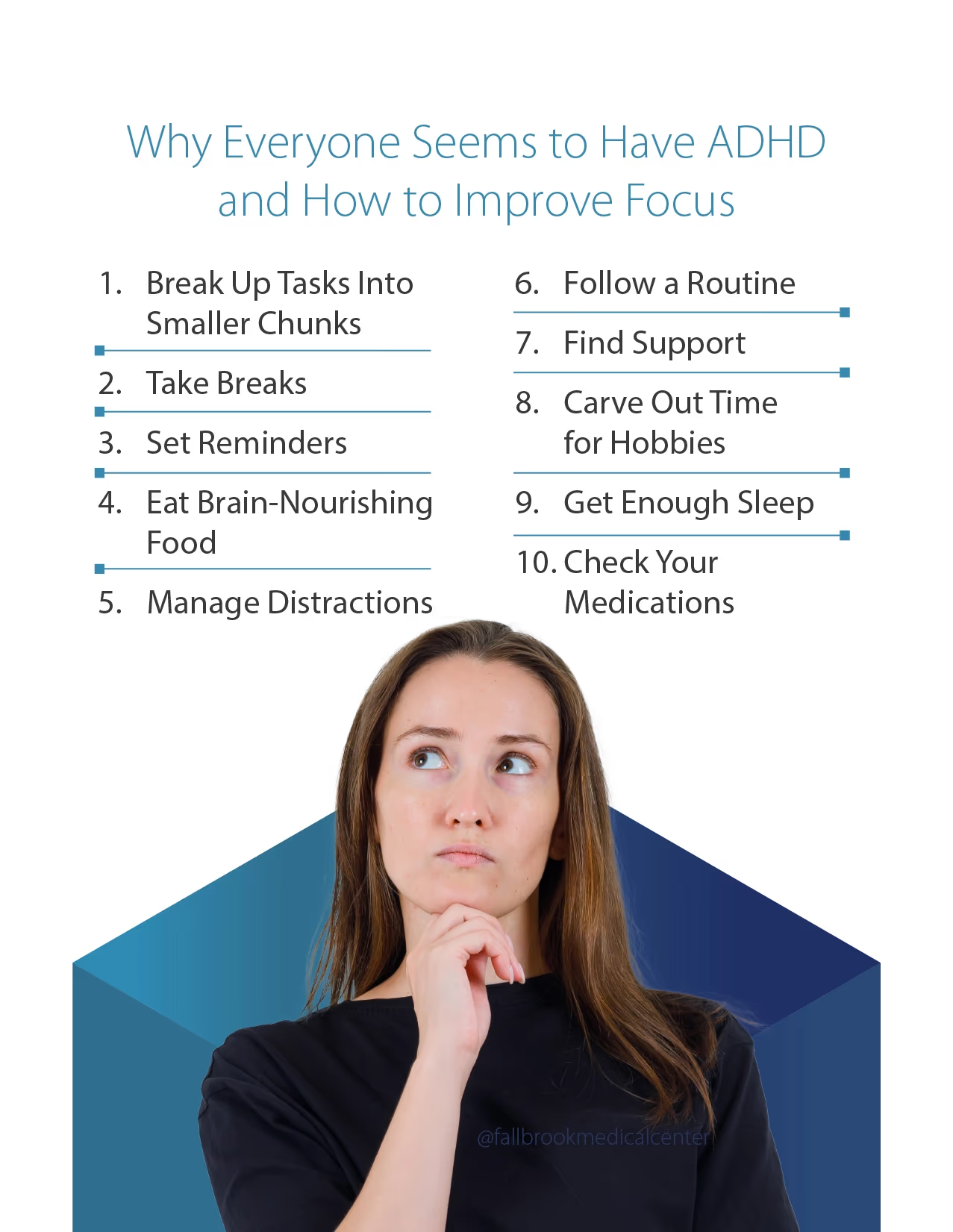Why Everyone Seems to Have ADHD and How to Improve Focus

Attention Deficit/Hyperactivity Disorder, also known as have ADHD has become quite a popular term in recent years, whether through self-diagnosis or based on actual medical results. Many psychologists state how they’re beginning to see more and more patients with self-proclaimed attention deficit, explaining how their symptoms fall somewhere on the spectrum. However, while some medical institutions describe this condition as a disorder, other experts don’t believe it should be defined as such, leaving plenty of room for discussion and potential ways to deal with the symptoms.
What is ADHD?
According to the Centers for Disease Control and Prevention (CDC), ADHD is a disorder that may cause trouble with focusing, controlling impulses, or their own activity levels (hyperactivity). It’s typically diagnosed in children, and according to some findings, could be caused by genetic factors.
The diagnosis itself is a complex process governed by the guidelines found in the American Psychiatric Association’s Diagnostic and Statistical Manual, Fifth Edition (DSM-5). These guidelines outline five major traits that, combined, could result in a positive diagnosis. They include:
- A variety of symptoms of inattention
- A variety of symptoms of hyperactivity and impulsivity
- The occurrence of symptoms by age (should have presented themselves before they were 12)
- A variety of symptoms are present in at least two different settings
- The symptoms interfere with or reduce the quality of their social, school, or work functioning
- The symptoms cannot be explained by any other mental disorder
The current treatment involves different kinds of behavior therapy that oftentimes involves parents, as well as certain medications that have shown great results in helping manage ADHD symptoms.
Is it Really ADHD?
Even though ADHD has been clearly defined as the abovementioned condition and disorder, many experts believe it’s, in fact, not a disorder at all. They describe ADHD as a so-called continuum of normality, falling at the end of the spectrum of normal executive function. They claim that the diagnosis criteria for ADHD aren’t clear and that there is no fixed threshold where one has or doesn’t have this condition since no actual tests are performed, and all depends on the perspective and experience of someone who only observes the child.
One of the main issues of ADHD is looking through the lens of sociocultural expectations of today, which require increased performance demands, extremely elevated levels of focus, immaculate time management, and irrational success rates. Today’s norms are asking for an incredible amount of effort from every individual, starting with schools and early education. When one fails to tag along with every demand or struggles with achieving the expected focus, one can easily become a candidate for ADHD, finding oneself within the DSM-5 guidelines.
The modern world seems to favor highly focused and highly successful people, placing everyone else at risk of getting diagnosed with ADHD. Social media and other outlets that are readily available to each and every individual allow for self-diagnosis, explaining their own lack of focus as a disorder that isn’t curable but needs to be managed. Although some people definitely need more help than others, ADHD is not turning into a pandemic, and finding ways to improve focus doesn’t have to be through ADHD treatment.
Tips to Improve Focus
If you’re finding it hard to pay attention and focus on your day-to-day tasks, whether important or not, before you go down the rabbit hole and assure yourself you have ADHD, try implementing some lifestyle changes that can help you improve focus. Here are some of the best tips that can help you find some clarity and reduce distractions.
- Break Up Tasks – breaking up tasks into smaller chunks reduces the overwhelming feeling of having to tackle everything at once. This way, you’ll only have to focus on one thing at a time, increasing your chances for success.
- Take Breaks – focusing on one task for a long period of time can easily make the mind wander. Taking breaks allows you to clear out your head and help you come back to your task feeling refreshed.
- Set Reminders – Be gentle with yourself and write down 2-3 things you want to accomplish for the day. Set reminders around your living and work space, so that even if you get distracted, you can get back on track.
- Eat Brain-Nourishing Food – Certain foods and nutrients like omega-3 fatty acids and antioxidants play a large role in brain health and development, helping improve brain cell function.
- Manage Distractions – Turn off TV, music, or a podcast while you’re doing something else. Having media playing in the background can make it harder to focus on the task at hand.
- Follow a Routine – sometimes the best way to improve your focus is to have a somewhat same schedule every single day. That way, you can block out the time when you’re working or performing a task, knowing that you only need to focus for a few hours at a time. It acts almost as muscle memory, helping train your brain to stay concentrated.
- Find Support – having someone support you and keep you motivated, inspired, and accountable will help you track and notice your progress. Whether it’s a friend, family member, or a support group, having someone to cheer you on can help immensely.
- Carve Out Time for Hobbies – spending time doing things you enjoy will help relax your mind and give it some rest. Working on improving focus isn’t an easy thing to do. It takes time, effort, and energy which can make you feel depleted and fatigued. Counter-act it with a fun activity and feel inspired to keep working towards your goals.
- Get Enough Sleep – a restful and good-quality nightly slumber cannot be neglected. Sleep is crucial for improving and maintaining good concentration, attention, and even memory. Aim for at least 7-8 hours of sleep per night.
- Check Your Medications – if you’re dealing with an underlying condition and taking medications, consult with your healthcare provider. Some medications are known to cause attention and concentration issues, and they might be making your problem worse.
Final Thoughts
Having issues with focus and attention might be as simple as needing to get more sleep or becoming more organized, but it also might be sign of an underlying condition. Whether it’s ADHD or something else, trying to improve your focus with the abovementioned tips can’t hurt!


